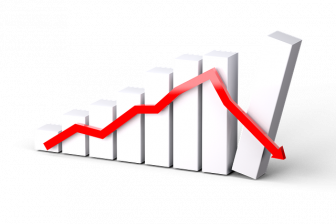 UK house prices will not rebound after the slump because interest rates will still be higher than they have been for the last decade, economists have warned.
UK house prices will not rebound after the slump because interest rates will still be higher than they have been for the last decade, economists have warned.
The average value of a UK home will fall by 12% from peak-to-trough by the end of 2024, according to S&P Global Ratings.
It warned that there was “little prospect” of a strong recovery as mortgage holders and buyers will continue to face higher real costs of borrowing “for the foreseeable future”.
It predicts that UK house prices will fall by 6.6% in 2023, and then by a further 4.9% next year. After that, S&P expects the market will stagnate, with growth of just 1.4% and 3% across 2025 and 2026 respectively.
The worst of the pain of rate rises is still to come, with higher interest rates continuing to flow into the mortgage market, hitting homeowners coming to the end of fixed rate deals, S&P warned the pressure “will intensify further”.
“There is still some time to go before mortgage pain reaches its peak,” it said.
Boris Glass, senior economist at SP Global, said homeowners were unlikely to get any relief even if interest rates began to fall after 2024.
“Even when central banks ease again, mortgage holders and potential buyers will continue to face higher real costs of borrowing that will take a larger share out of their budget and moderate demand for the foreseeable future,” he said.
Moody’s also forecasts that UK house prices will fall, although they have put the figure at 10% until the end of 2024 as mortgage rates soar and squeeze housing affordability.
Moody’s said that the UK’s booming housing market would experience a 4% drop this year and a 6% fall in 2024, making the UK property sector the worst among big developed economies.
Madhavi Bokil, senior vice-president at Moody’s, said: “We expect the Bank of England, faced with the responsibility to bring stubbornly high inflation down, to maintain a tight monetary policy stance through 2024. The effects of interest rates on housing demand in the UK are therefore likely to be acute and prolonged.”
More than 90% of all mortgage holders in the UK are on fixed deals spanning between two and five years. The bulk of homeowners have yet to experience the jump in interest rates from 0.1 per cent to 5% because of the duration of their loans, but more than 1 million will have to renew their loans in the second half of this year.


‘Man shouts at wind’
You must be logged in to like or dislike this comments.
Click to login
Don't have an account? Click here to register
God, these articles are getting boring. Follow the science… follow the economists …people who simply make it up as they go along in the hope of grabbing a “headline article” and then can say to their Grandkids “look I was famous as I have an article published on EYE”.
You must be logged in to like or dislike this comments.
Click to login
Don't have an account? Click here to register
w*****s
You must be logged in to like or dislike this comments.
Click to login
Don't have an account? Click here to register
If you remove all market understanding you can probably put together a case for this conclusion.
But the simple facts remain that development land is scarce, planning is painfully hard to achieve, meeting the new building regulations is costly and we have missed house building targets for many years. Looking at Europe and the US inflation would have appeared to have peaked and employment is high with strong wage growth.
Undoubtedly some of the froth has blown off of property values but given how appalling the news has already been and prices are holding I see very little chance of anything approaching a 12% fall in the short to medium term.
I agree with fotw2614 very boring!
You must be logged in to like or dislike this comments.
Click to login
Don't have an account? Click here to register